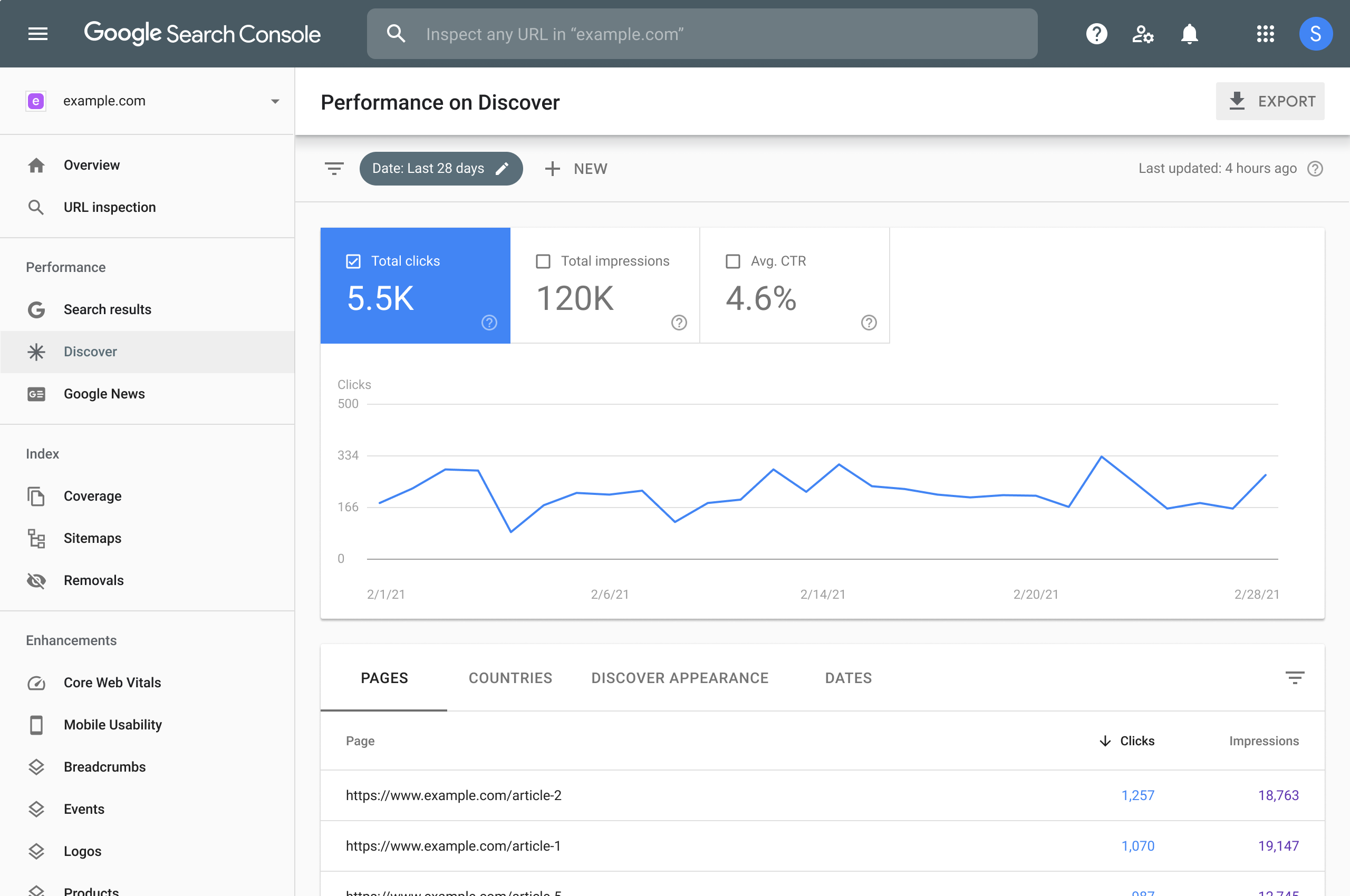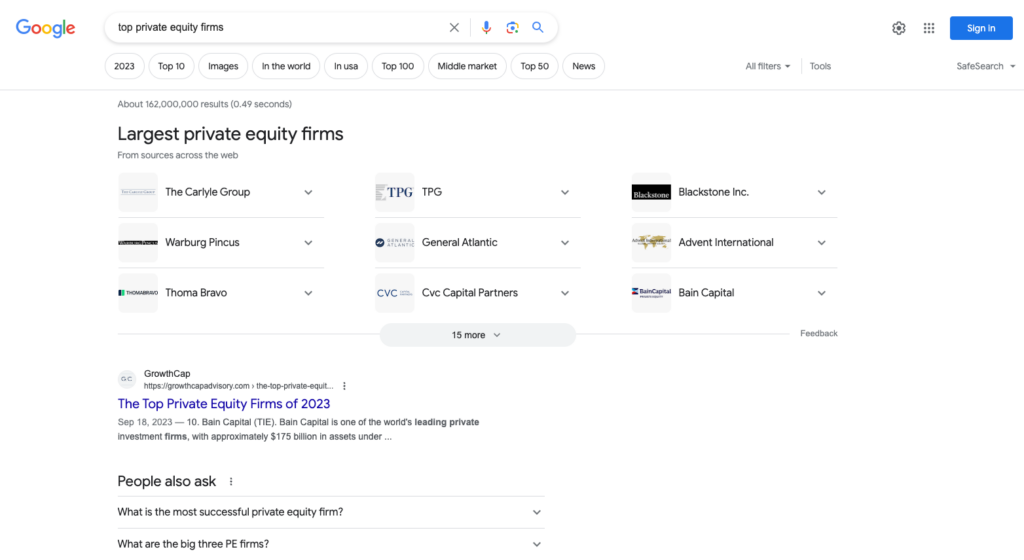Are you looking to recruit an SEO expert?
A strong organic search presence is a great way to attract new readers, users or clients. As you rank higher on search engine results pages (SERPs), you can usually expect more traffic, conversions and revenue. But it’s important to have the right person in place to lead these efforts.
What is SEO? Search engine optimization, or SEO, is the process or strategy behind improving a website’s content so that it organically ranks well on search engines like Google or Bing. This is different from paid search ads, which fall under SEM, or search engine marketing.
A search engine optimization guru (though they probably don’t call themselves that) will know that more organic traffic to your website means more potential customers.
They will know how to improve your site’s user experience and position content in a way that boosts conversions. This is especially important if people can make purchases or book business directly on your site.
While SEM requires ongoing investments, the right organic search strategy can yield long-term results that require less maintenance. That doesn’t mean it’s easy, though. A good search strategy could take months to bear fruit, depending on how competitive your market is.
That’s why SEO recruitment continues to be a hot topic for private equity firms, portfolio companies, and independent and public companies.
Let’s dive into what you should look for in an SEO, and how to hire someone whose talent matches your needs.

What Skills and Tools Do You Need for SEO
On-Page Skills
On-page SEO skills include optimizing your website content and technical elements to improve your rankings in search engines. Some of the more important ones include:
- Conducting keyword research to determine the best keywords and phrases to target for your site and content. Choose keywords that your audience is searching for and that you can rank for.
- Optimizing your page titles, meta descriptions, header tags, image alt attributes and content for your target keywords. Include keywords prominently and naturally to signal their relevance to search engines.
- Improving your internal linking structure by connecting related content and categories across your site. Link to high-quality, relevant content to guide users and search engines to your most important pages.
- Optimizing your URL structure with descriptive, keyword-rich page names. Well-structured URLs make your pages easier to read, navigate and rank in search engines.
- Providing valuable, high-quality content that matches for what your audience is searching. (The latter part is also known as keyword intent.) For more information about this, check out Google’s E-E-A-T documentation.
Off-Page Skills
Off-page SEO skills include building relationships with other websites and influencers to earn high-quality backlinks and increase your site’s authority. Key off-page SEO skills include:
- Conducting outreach to other websites and influencers for backlink opportunities like guest posts, interviews, mentions and citations. Build relationships with other industry leaders to earn high-quality backlinks over time.
Be careful, though. Buying backlinks or engaging in shady link-exchange tactics can get you in trouble with the algorithms. Avoid these schemes at all costs (no pun intended). - Leveraging social media platforms to increase exposure for your content and brand. Share your blog posts, news, events and other updates on sites like Facebook, Twitter, LinkedIn, and Instagram to reach new potential customers and backlink partners.
- Engaging with your audience and influencers through email marketing campaigns. Send a regular newsletter, promote new content, share industry news and build rapport with subscribers to earn more links and social shares.
- Participating in relevant online communities and forums to establish yourself as a thought leader. Answer questions on sites like Quora, Reddit and industry-specific forums. Provide value to others while linking back to your website. (Do this with caution, though. Reddit moderators don’t like it when users hijack their subreddits simply to get more traffic.)
Technical SEO Skills
Technical SEO skills refer to the technical knowledge and abilities required to optimize a website for search engines like Google. Some key technical SEO skills include:
- Optimizing page-load speed. Some tactics for this include reducing file sizes, minimizing redirects, optimizing images, caching content and compressing code.
Fast page load speeds improve the user experience and search engine rankings. A well-structured site with logical navigation and internal links helps search engines understand your content. Google’s Core Web Vitals are a great starting point to learn more about this topic. - Ensuring your content is mobile-friendly and responsive, with a clear focus and user experience for all device types. The majority of web traffic now comes from mobile devices, so a mobile-optimized site is essential.
In fact, Google uses mobile-first indexing to crawl sites. - Troubleshooting any technical SEO issues like duplicate content, broken links, crawl errors or penalties to resolve problems and avoid negative impacts on search visibility.
Content Marketing
Content marketing refers to the creation and distribution of valuable, relevant content to attract and retain customers. It is closely tied to SEO, as high-quality content helps to improve search rankings, increase traffic, build brand authority and boost lead generation. Key content marketing skills for SEO specialists include:
- Conducting keyword research to identify topics and questions that your target audience is searching for. Then, create content that answers those questions and optimizes for relevant keywords.
- Writing informative and engaging blog posts, articles, case studies, whitepapers and other content assets. Content should be valuable, well-researched, and optimized for both search engines and readers.
- Promoting content on social media platforms to increase traffic and engagement. Share updates on sites like Facebook, LinkedIn, Twitter, and LinkedIn to reach new readers and earn more links and social shares.
- Analyzing the performance of your content using tools like Google Analytics, Search Console and Buzzsumo. Track traffic, rankings, engagement and conversions to determine what’s working and what needs improvement.
Strategy and Planning
SEO strategy and planning refer to the high-level thinking and goal setting required to optimize a website for search. Some key SEO strategy and planning skills include:
- Conducting a comprehensive SEO audit to analyze your website and marketing performance. Review on-page and off-page factors like technical issues, content gaps, link profiles and keyword rankings to determine your strengths, weaknesses and opportunities.
- Developing a data-driven SEO plan that outlines your goals, key objectives, actions, timelines, resources and expected outcomes. Set specific, measurable goals for traffic, rankings, conversions and revenue that align with your business objectives. Determine the strategies and tactics you will use to achieve those goals.
- Implementing and monitoring your SEO plan to ensure you stay on track. Use project management tools and best practices to organize workflows, assign responsibilities, track progress and make adjustments as needed. Regularly evaluate your results and key metrics to determine what’s working and what needs improvement.
- Adjusting your plan based on feedback, insights and changes in the search landscape. Search engines frequently update their algorithms and best practices, and the needs of your audience may evolve over time as well. Review your plan regularly and make data-driven changes to optimize your efforts and results.
Commonly Used SEO Tools
Here are some of the higher level categories of search-related tools, as well as some specific recommendations within each one:
- Keyword research: Software such as Ahrefs Keyword Generator, Moz Keyword Explorer and Semrush Keyword Magic Tool help identify the most relevant keywords and phrases to target on your website. They provide data on search volume and competition to help optimize your content.
- Technical SEO: Screaming Frog, Google Search Console and Ahrefs Site Audit help assess technical issues that could affect your search rankings. They crawl your site to identify errors like broken links, slow page load times, duplicate content and more. They also provide metrics on site speed, mobile-friendliness and XML sitemaps to help optimize technical SEO.
- Content optimization: Content optimization tools like Yoast SEO, Grammarly and Hemingway Editor help create blog posts, articles and other content that ranks well in search engines. They analyze content for keyword usage, readability, grammar and plagiarism to ensure it is high-quality, informative and optimized for your target audience.
- Link building: Tools such as Ahrefs Backlink Checker, Moz Link Explorer and BuzzSumo help build high-quality backlinks to improve your site’s authority and search rankings. They provide data on your existing link profile as well as opportunities for new links and influencers who may be interested in linking to or sharing your content.
- Analytics: Analytics tools like Google Analytics 4, Looker Studio and Google Tag Manager help track the performance of your SEO and content marketing efforts. They provide insights into metrics such as traffic, rankings, engagements, conversions and revenue to determine what’s working and what needs improvement.
- Artificial Intelligence: With the wide release of ChatGPT, as well as the creation of myriad other AI tools, this is quickly becoming an essential part of the content-creation process. Just make sure the SEO you hire uses these tools to complement their job, and not do all the work for them. AI can be great, but it shouldn’t be applied to an SEO strategy without thorough human refinement and vigilance.

Assess a Candidate’s Knowledge and Experience
This role requires a combination of both technical knowledge and strategic thinking to analyze data, identify opportunities and develop high-impact solutions.
Here are some ways to make sure they fit the bill:
- Online tests: Services like Imocha, TestGorilla and Vervoe offer skills assessment tests tailored for SEO specialists. These measure a candidate’s knowledge of on-page and off-page optimization, content strategy, link building, analytics and more.
- Portfolio reviews: Ask the candidate to share examples of previous SEO projects, case studies or their own website to evaluate their work. Look for clear goals, data-driven insights and measurable results and impact. They may have to anonymize some parts of the report for client confidentiality, and that’s OK. The main think you want to see is that they have experience executing successful projects.
- Case studies and scenarios: Present the candidate with an SEO challenge or problem and ask them to walk through how they would approach and solve it. This helps assess their strategic thinking, decision making and problem-solving abilities. Don’t be afraid to do it live during the interview. If they don’t know some of these things off the top of their head, they’re probably too green to lead in this area.
- References and testimonials: Speaking with a candidate’s past clients or employers is one of the best ways to evaluate their skills, work quality and professionalism. Look for references that can speak to their SEO experience, key accomplishments and strengths. This will also be a sign that they’re pleasant to work with if others are willing to help them.
When you use a resource from the BluWave-vetted network, they have already been vetted multiple times before we ever consider connecting you. They must also have multiple high-quality references from private equity firms and other top businesses.
Even then, we won’t just send you a list of all the candidates available. We will select from the best resources on standby to give you two or three best-fit options for your specific situation. Within one business day, you’ll have two or three SEO options that are tailored to your niche.
Top SEO Terms
There are many key terms used in SEO that are important to understand. They describe concepts, strategies and metrics that specialists reference on a regular basis. Some of the top words and phrases to know include:
Basic terms:
- Search engine: A website that allows users to search for information on the internet, such as Google, Bing or Baidu.
- Crawler: A program that searches the web to build an index of websites and content for a search engine.. This could also be referred to as a “bot” or “spider.”
- Index: A search engine’s database of websites, pages and content that have been crawled and indexed.
- Query: The search terms entered by a user into a search engine. This is more commonly referred to as a “keyword” in many cases.
- SERP: Search engine results page, or the page of results returned for a user’s search query. It’s pronounced just as it’s spelled.
- Organic vs paid results: Organic results are earned, while paid results are advertising spots purchased by businesses. Make sure you’re not hiring an SEM expert to do SEO work. While related, these are completely different skills.

Technical terms:
- URL: Uniform Resource Locator, or the full address of a page on the web. And a URL slug is everything that comes after .com or .net, for example. This page’s URL is https://bluwave.net/seo-recruitment/, but the slug is simply /seo-recruitment/.
- Domain name: The main part of a URL, like “bluwave.net“.
- HTTP status code: A number that indicates the status of a request to a web server, such as 200 for success or 404 for not found.
- Robots.txt: A text file that tells search engine crawlers which parts of a website to index or avoid. If a candidate doesn’t know how to find your robots.txt file in 10 seconds or less, don’t hire them.
(Hint: All they have to do is go to yoursite.com/robots.txt) - Sitemap: An XML file that lists the pages on a website to help search engines discover and crawl content.
On-page terms:
- Keyword: A word or phrase that users may search for to find content on a specific topic.
- Title tag: HTML element that contains the main headline for a page and is displayed in search results. In the code, this would be <title>Page Title Here</title>. This is one of the most important elements of ranking on SERPs.
- Meta description: A concise summary of a page’s content that is displayed in search results. This is important, but it does not have an affect on a page’s ranking.
- Heading tag: HTML elements like <h1> to <h6> that indicate the importance and structure of content on a page. A page’s headline is usually within an <h1> tag. It’s best to have only one <h1> tag per page.
- Alt text: Description of an image that is displayed if the image cannot be seen by a user. This is especially important to making your site accessible for people with disabilities.
Why do you have more than one H1?
— johnmu is not a chatbot yet 🐀 (@JohnMu) June 15, 2017
Off-page terms:
- Link: A hyperlink that connects one page to another.
- Anchor text: The clickable text of a link.
- Backlink: An incoming link to a page from another website. This is a significant factor in ranking well on Google.
- Link building: The process of acquiring high-quality backlinks to improve a website’s authority and search rankings. This is best done naturally and not through paid schemes or shady exchanges.
- Domain authority: A score that indicates the strength and influence of a website based on the quality and quantity of links pointing to it. Search engines like Google do not recognize domain authority. It’s a score used by platforms like Ahrefs and Semrush. Think of it as a barometer and not a thermostat.
Top KPIs in SEO
To track the success of your SEO efforts, you need to choose the right KPIs. Some of the top ones to consider are:
- Business outcomes: Focus on conversions, customer lifetime value, cost per acquisition and return on investment. These show the direct impact of SEO on your business.
- Traffic quality: Monitor organic visibility, organic sessions, branded vs non-branded traffic and bounce rate. This helps ensure you’re getting high-quality traffic. Google Analytics 4 is a great way to do so.
- Keyword performance: Track your keyword rankings, keyword difficulty and keyword opportunity. See how you can improve your rankings and find new keywords to target.
- Link profile: Evaluate your backlinks, referring domains, domain authority and link velocity. Build high-quality links to boost your rankings.
These KPIs provide actionable insights into your SEO progress and help guide your strategy. Track them regularly to maximize your search visibility and drive more traffic and conversions.
Interview Questions for an SEO Candidate
Interview questions help evaluate if a candidate has the necessary skills and experience for an SEO role. They reveal how well they understand SEO concepts, strategies and best practices.
Here are some sample questions you can use:
General questions:
- What is your approach to SEO and how do you stay up-to-date with trends?
- What are your top priorities for SEO and how do you determine key performance indicators (KPIs)?
- How would you integrate SEO with our overall digital marketing strategy?
Technical questions:
- How would you evaluate our website’s technical SEO health? What issues should we fix?
- How can we improve site speed and mobile-friendliness? What tools would you use?
- How would you handle a manual penalty from Google? What steps would you take to resolve it?
On-page questions:
- How would you analyze our competitors’ keyword strategies to find new opportunities?
- What on-page optimizations would you recommend for our content? How can we improve rankings?
- How do you optimize title tags, meta descriptions, headings and image alt text for SEO?
Off-page questions:
- What link building strategies have you used and found most effective?
- How would you build high-quality links to improve our domain authority and search rankings?
- How can we earn more authoritative backlinks while avoiding link schemes and other unethical practices?
SEO Work Experience
Here are some of the things you would want to see from a candidate’s past work. While no one will have expertise in all these areas, having at least some of them is essential.
SEO Projects:
- Types of projects, such as technical audits, content optimization, link building.
- Scope and complexity of projects, including the number of web pages, amount of content, types of keywords.
- The candidate’s level of responsibility and involvement e.g. executing tasks, managing projects, leading SEO teams.
SEO Results:
- Improvements in search rankings, organic traffic, conversions.
- Growth in key metrics like impressions, clicks, dwell time.
- Awards, case studies or other recognition of their results and impact
SEO Tools:
- SEO software, analytics platforms, rank tracking tools, etc. that the candidate has expertise in using.
- Technical skills with HTML, CSS, PHP, JavaScript. Even if the candidate isn’t a “coder” or programmer, they should have knowledge of some of these languages.
SEO Skills:
- Strong research, analysis, problem-solving and critical thinking.
- The ability to optimize content for both search engines and users.
- Proficiency in link building, outreach, content promotion and other SEO strategies.
- Excellent communication skills for educating clients and coworkers about SEO.
Keep Up with SEO Trends and Best Practices
There are many great resources these days to keep up with the latest SEO trends and best practices. Sometimes, though, it can be hard to tell which are legitimate. Here are a few recommendations both for your benefit, as well as what you might like to hear from how a candidate stays informed:
- Blogs: Follow reputable SEO blogs like Moz, Ahrefs, Search Engine Roundtable and Search Engine Journal. They frequently publish articles on the latest trends, updates from search engines and expert opinions.
- Podcasts: Listen to SEO podcasts such as Search Off the Record (Google’s official show) and Search Engine Journal Show. Experts are often interviewed to discuss trending topics, share their insights and debate controversial issues.
- Webinars: Attend webinars from platforms like Ahrefs, Clearscope and BrightEdge. They frequently host live sessions with SEO professionals talking about trending strategies, new opportunities and ways to overcome challenges. The Q&A portions of these webinars also provide useful discussions on recent changes in search rankings and algorithms.
- Online courses: Take online courses on SEO and related topics from Udemy, Thinkific, Kajabi and LinkedIn Learning. These courses teach the latest techniques and best practices from industry experts. While some cover SEO fundamentals, many focus on trending areas like technical SEO, content optimization, link building and keyword research. Though often paid, the courses help gain a deeper understanding of current SEO methods.
- Conferences: Join online or in-person SEO conferences to hear from industry leaders, learn from case studies and network with other professionals. Major conferences like SearchLove, Friends of Search Fest, Brighton SEO, MozCon and Mn Search Summit feature keynote speeches, panel discussions, and presentations on the newest trends, innovations, and issues in SEO. Attending these conferences is a great way to stay ahead of competitors and meet like-minded SEO practitioners.

Do you need a digital content maven to give your website(s) a deep audit? Or perhaps this is something you never considered and don’t know where to start. A proven SEO expert is just what you want.
The BluWave network of highly vetted service providers has search engine optimization resources on standby, no matter your organization, website size or industry.
When you get on a scoping call with our research and operations team, they’ll perform a quick but detailed evaluation of your situation and provide two to three best-fit SEO resources within a single business day.
With so much opportunity in organic search, you don’t want to waste another day with a website that isn’t optimized for growing your business. Contact us today to get started.


